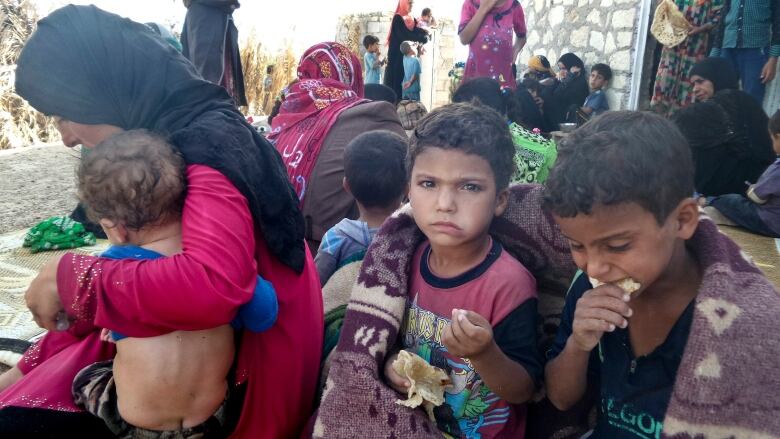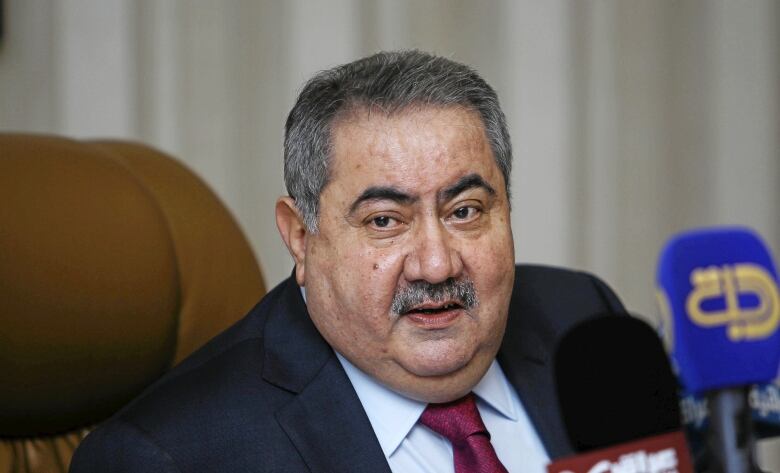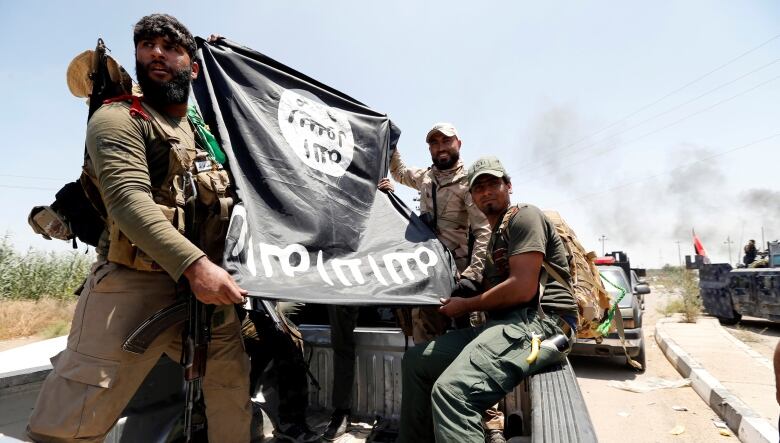ISIS holding Fallujah population hostage, Iraqi minister says
Tunnels, IEDs and danger to civilians contribute to stalled assault on militant stronghold

Islamic State is putting up atough fight in Fallujah and itsrecapture by the Iraqi army couldtake time, said Iraqi Finance Minister Hoshiyar Zebari.
Fallujah, located 50 kilometreswest of Baghdad,has been a bastion of the Sunni insurgency that fought both theU.S. occupation of Iraq and the Shia-led Baghdad government.
- Iraq stalls fight with ISIS over Fallujah 'to protect civilians'
- Thousands of children at risk inFallujah, UNICEF says
- Iraqi forces reach edge ofFallujahin fierce fight with ISIS
ISIS fighters raised their flag there in January2014 before sweeping through much of Iraq's north and west,declaring a caliphate several months later, from Mosul.
"Fallujah is a tough nut to crack," he told Reuters in aninterview on Thursday evening. "Daesh are holding the populationas hostages, not allowing them to escape, and they are puttingup a tough fight there," he added, referring to the militantgroup by one of its Arabic acronyms.
"Nobody can give you a definitive time when Fallujah will becleared of Daesh. Mainly because of the resistance, because ofthe IEDs[improvised explosive devices], because of the tunnels"the militants have dug to move without being detected, he added.
The army started the offensive on May 23, with the backingof Shiamilitias known as Popular Mobilization Forces (PMF)and air support from the U.S.-led coalition.
Prime Minister Haider al-Abadi said on Wednesday the armyhad slowed the pace of its offensive because of fears for thesafety of tens of thousands of civilians trapped in the citywith limited access to water, food and healthcare.
"The security forces, the PMF have made significant progressbut really to storm the center of Fallujah I think will taketime," Zebari said. "We should not declare victory prematurely."

Harder thanTikrit,Ramadi
A spokesman for one of the main Shia paramilitary groupstaking part in the offensive on Fallujah said the operations havecome to a near standstill in the past three days and asked Abadito order the attacks to continue.
"We demand that Prime Minister Abadi continues the operationto free Fallujah and not to submit to American and Westernpressure to halt the operation," said Jawad al-Talabawi, aspokesman of the Iran-backed Asaib Ahl al-Haq.
"We say freeing Fallujah is needed to protect Baghdad."
Abadi ordered the offensive on Fallujah after a series ofbombings claimed by Islamic State hit Shiadistricts of Baghdad, causing the worst death toll this year.

Fallujah would be the third major city in Iraq recaptured bythe government after former dictator Saddam Hussein's home townTikrit and Ramadi, the capital of Iraq's vast western Anbarprovince. Abadi has expressed hope that 2016 will be the year of"final victory" over Islamic State, with the capture of Mosul,their de facto capital in northern Iraq.
Baghdad-based political analysts said the battle for Fallujahcould be harder than Tikrit and Ramadi because of the symbolismof the city for the militants and because they cannot retreat toother places, as the whole area is under siege by the army andShia militias.
"In Fallujah, Daesh has die-hard fighters defending a citythey consider as a symbol for Jihad," said analyst and formerarmy general Jasim al-Bahadili.
Political analyst Ali Hashim said that even if thegovernment managed to retake Fallujah, it would continue to facethe problem of winning over the Sunni population, some of whomfeel marginalized by the Shia-led government.












_(720p).jpg)


 OFFICIAL HD MUSIC VIDEO.jpg)
.jpg)



























































































